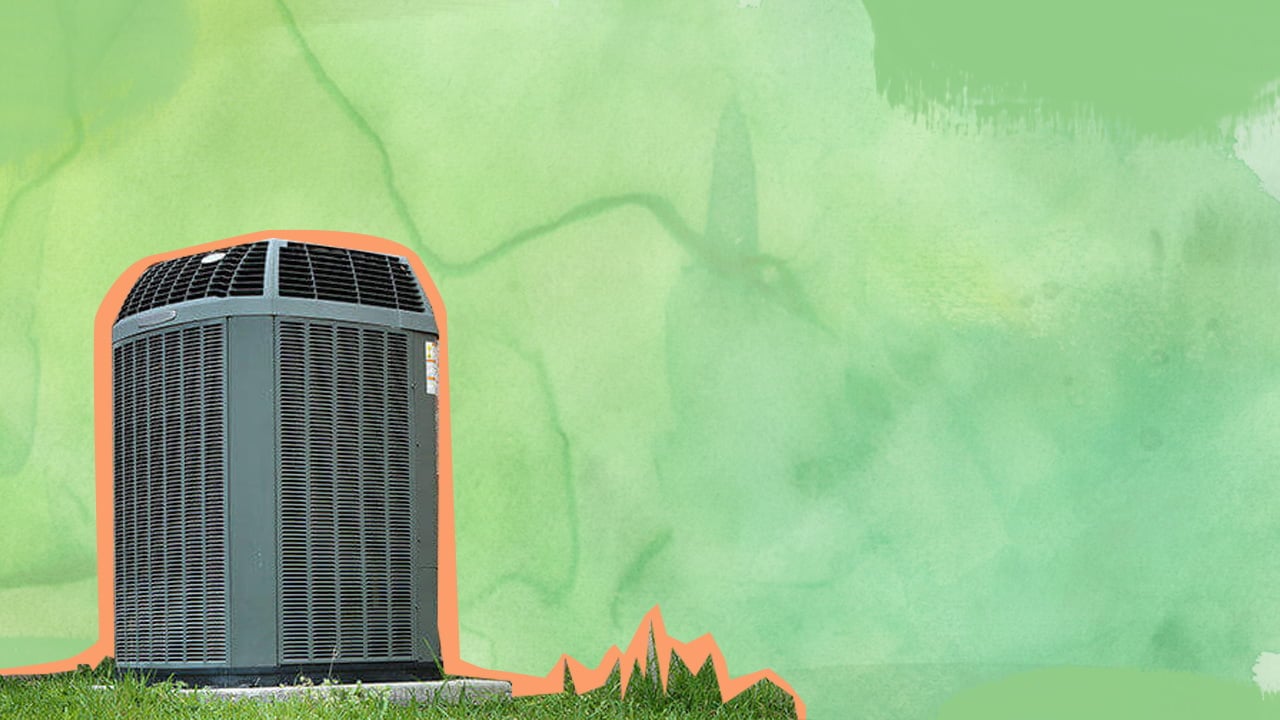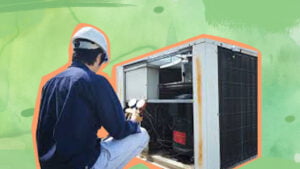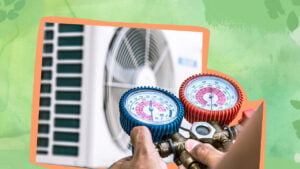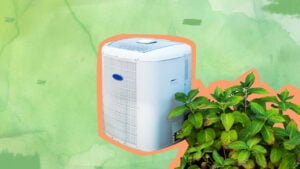Excessive humidity has a negative effect on air conditioning systems as it impacts the capacity of your device to offer sufficient cooling. In fact, high humidity levels affect heating systems as well, making it difficult to attain optimal temperatures within your house.

For achieving optimal indoor comfort, you will need HVAC systems that have humidifiers and dehumidifiers installed to keep the temperature and humidity levels in check. Ideally, the humidity level should be below 60%, but this is seldom possible since temperatures fluctuate throughout the year. In this guide, I will be telling you how humidity affects air conditioning and what you can do about it.
Let's begin.
What Is Humidity?

Before I can tell you more about how humidity affects heating and cooling systems, it is important to have a concrete idea of what humidity is.
Humidity is nothing but the amount of water vapor present in the air at any given point. If the amount of water vapor is high, the humidity will subsequently be high. When the air is holding a high volume of vaporized water, it cannot hold anything else, and as a result, it becomes very sticky as your skin is unable to dissipate sweat.
Humidity is usually expressed in terms of relative humidity. By definition, relative humidity is a measure of the amount of moisture present in the air when compared to the amount the air can hold at the same temperature. It is always expressed in percentage.
Needless to say, the excess moisture in the air can have an adverse impact on your day-to-day life. Not only does it lead to lethargy, but it also results in the malfunctioning of household electronics (including HVAC systems) as well as mold and mildew formation.
Ideally, the relative humidity levels inside the house should be between 30% to 50%. However, during scorching summer months, humidity levels spike way above that, and your air conditioning system becomes ineffective in dealing with this rise. As a result, it is unable to effectively cool the indoor air.
How Does Humidity Affect Air Conditioning?
The work of an air conditioner is to cool the indoor air by eliminating excess heat and moisture. Before I can help you understand how high humidity affects air conditioners, let me tell you a little about how AC systems work.
The refrigerant present in your AC system collects and drains the condensation that is produced as a result of water vapor in the air. The warm air passes over the evaporator coil, and cool air is then released into your home. So, the air conditioner removes not just excess heat but also lowers humidity levels inside your space.
That being said, air conditioners have to work harder when the humidity levels are high. If your system does not offer enough cooling capacity, it won't be able to function effectively. As such, you will be sitting in a humid, suffocating home environment while your electricity bills continue to rise.
Signs Of High Humidity Levels
There are a few common signs of increasing humidity that you should watch out for. These are:
1. Clammy Air
If the air inside your home feels moist, to the point where even your skin feels clammy, then it's a sign of humidity inside the house.
2. Foggy Windows
When vaporized water in the air is suspended with no route for escape, it tends to get bottled up inside the premises and fog up the windows.
3. Musty Odor
A musty smell around the house is a common sign of high humidity. This is because high indoor humidity results in dampness in the house, which causes this problem.
Problems Caused By Low Humidity
Both high and low humidity wreaks havoc on your heating, ventilation, and air conditioning (HVAC) system. While high humidity levels will make it difficult for the air conditioning system to cool your house, if humidity levels drop dramatically, it affects heating systems during winter.
During winter, humidity levels are usually low, and the relative humidity inside the house is low as well. As such, your home will feel a lot cooler, and this will put a strain on your heat pumps or furnace, affecting its heating capacity.
Thus, both high and low humidity levels are responsible for making the indoor air uncomfortable. The ideal home temperature should be between 70 to 78 degrees Fahrenheit. However, when humidity levels rise or fall below the ideal level, it becomes difficult to maintain this temperature, and it, in turn, changes the apparent temperature inside the house.

Humidity Control In HVAC Systems
It is possible to control the humidity in your home by installing a humidifier or dehumidifier on the HVAC system. Let's learn more about them.
Role of Dehumidifiers
The work of a dehumidifier is to pull moisture from the air before it is passed through the ducts of your home. The dehumidifier can be paired with your air conditioner and operated with a remote control. Some latest air conditioning systems not just cool the air but also humidify, dehumidify, and purify it.
Role of Humidifiers
If the humidity levels in your house fall low during winter months, installing a humidifier on your HVAC system is the perfect solution. It adds moisture to the air that enters your home and thus keeps the relative humidity around 50%, which will make your home feel warmer and more comfortable.
Tip
I highly recommend using humidifiers in colder regions. As the device adds more moisture, your place will feel warmer, thereby reducing your energy bills.
Importance Of Proper Humidity Levels
When indoor humidity levels are well within control during peak summer months, your air conditioner is able to do its job effectively, and its cooling capacity is maximized. As such, you will feel more rejuvenated and cooler.
Besides, issues such as musty odor, clammy air, or foggy windows will be eliminated. The cherry on the cake would be your energy bills, which will drop down as your AC system wouldn't have to work as hard to cool the house.
When humidity levels are extremely low during winter months, your house can feel cooler than usual, and this puts unnecessary pressure on your heating system. Getting a humidifier installed will stabilize the humidity levels in the house and make low temperatures more bearable.
Tips To Manage Humidity In Your Air Conditioning System
To ensure that your HVAC system operates efficiently and your house remains comfortable, no matter the weather outside, install a hygrometer. The work of a digital hygrometer is to monitor humidity levels.
Besides, you should get a dehumidifier installed to remove moisture from the air in your home and keep the air conditioning system running properly. You should also get a humidifier installed that increases humidity levels.
In addition, there are certain ways you can manage extreme humidity in your cooling system. Let me tell you more about it.
1. Install A Correctly Sized Air Conditioner
First things first, make sure your air conditioner is correctly sized. If the capacity of your air conditioner is larger than needed, it won't remove moisture as effectively and will cause high humidity.
This happens because more powerful air conditioners have compressors that don't need to run for long and turn on and off frequently. So, the system never runs long enough to remove as much moisture as necessary from the air. To fix this problem, I recommend installing an appropriate-sized system.
2. Regular Maintenance Of HVAC Systems
You should get your air conditioning systems checked and serviced by an electrician regularly. They will inspect your system, particularly the evaporator coil and air filter, and remove excess dirt if it has accumulated on them.
3. Proper Ventilation And Insulation
You can install exhaust fans, especially in the kitchen, as they help to remove excess moisture from the air. Similarly, properly insulating your house also keeps humidity levels in check and helps maintain an optimal temperature in the house.
4. Do Not Use Fans And Air Purifiers
In hot and humid climates, fans and air purifiers have no real use as they do not help lower humidity. Although fans move the air, they do not remove humidity. Similarly, air purifiers do not remove excessive humidity from your room and only work towards removing contaminants and purifying the air.
Note
A lot of households use ventless portable air conditioners, but although these work well in dry climates, they are not designed for humid areas. However, if you do have a ventless portable AC system, particularly one without a hose, you can make it functional by mounting it on the window sill.

Final Words
Now that you know how humidity affects the heating and cooling systems of the house, I'm sure you will consider investing in a humidifier and dehumidifier. Most HVAC systems today are equipped with cutting-edge technology that can ensure optimal temperature and humidity levels in your house.
Remember, high humidity affects an AC system negatively since it cancels out its cooling effect. Therefore, even if you keep your air conditioner running, you will not get nearly as many benefits, and the house feels a lot warmer than it is.
You must take sufficient steps to ensure the humidity levels remain normal throughout the year, no matter the weather outside. This is particularly important if people in your house suffer from allergies or respiratory illnesses.
My suggestion would be that you get in touch with an HVAC expert who can upgrade your heating and cooling systems. As such, you can enjoy more energy savings and a comfortable, relaxing home environment.
